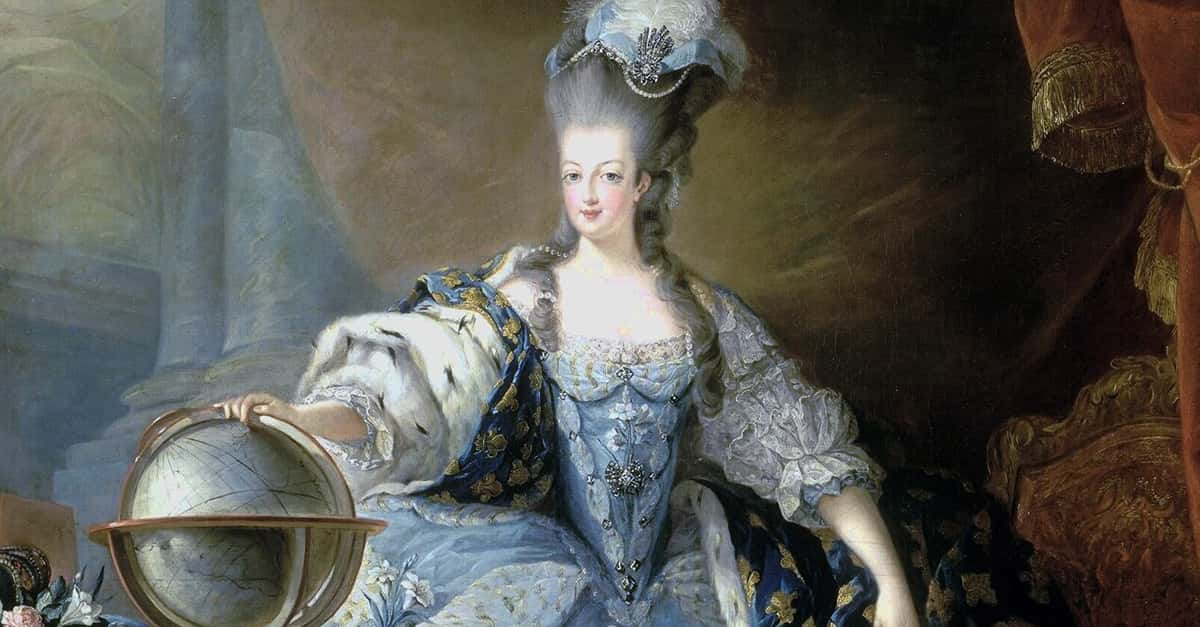Unforgettable Figures
Not everyone lives to see people singing their praises. But the lives of these influential individuals surely do. They have created history and are remembered for their contributions and achievements even today. Here is a display of their extraordinary lives.

Florence Nightingale (1820–1910)
In 1860 at St. Thomas' Hospital, London, Nightingale founded the Nightingale Training School for Nurses. You won't believe that this was the first ever secular nursing school in the world. She was a social reformer, a statistician, and mainly a nurse who had a massive part in shaping modern nursing.
 Henry Hering (1814-1893), Wikimedia Commons
Henry Hering (1814-1893), Wikimedia Commons
Florence Nightingale (1820–1910) (Cont.)
Her nickname, "The Lady with the Lamp," was given due to her habit of making rounds at night to check on patients. Even International Nurses Day is celebrated annually on her birthday, May 12. Nightingale wrote the book Notes on Nursing: What It Is and What It Is Not.
 Unknown Author, Wikimedia Commons
Unknown Author, Wikimedia Commons
William Shakespeare (1564–1616)
As London's top playwright, Shakespeare wrote around 39 plays, 3 narrative poems, and 154 sonnets that are still celebrated and studied today. His earliest plays are Richard III and Henry VI (all three parts), written in the 1590s. He was also a co-owner of the Globe Theatre, where he staged his plays.
 BatyrAshirbayev98, CC BY-SA 4.0, Wikimedia Commons
BatyrAshirbayev98, CC BY-SA 4.0, Wikimedia Commons
Abraham Lincoln (1809–1865)
On January 1, 1863, Abraham Lincoln announced the Emancipation Proclamation. This stated that all the slaves in areas controlled by the Confederacy would be set free. Lincoln was a self-taught lawyer who tackled one of the toughest times in American history—the Civil War of 1861.
 George Henry Story, Wikimedia Commons
George Henry Story, Wikimedia Commons
Albert Einstein (1879–1955)
Who doesn't recognize this name? Einstein was the one who totally changed the game in physics while he was a patent clerk. His ideas cleared up the photoelectric effect and showed that atoms are real. The mass-energy equivalence formula E=mc2 is his famous equation in science.
 Orren Jack Turner, Wikimedia Commons
Orren Jack Turner, Wikimedia Commons
Albert Einstein (1879–1955) (Cont.)
The year 1905 is often said to be Einstein's "miracle year," during which he published four significant papers that laid the foundation for modern physics. Fast forward to 1921, Einstein was given the Nobel Prize for his work on the photoelectric effect.
 Ferdinand Schmutzer / Adam Cuerden, Wikimedia Commons
Ferdinand Schmutzer / Adam Cuerden, Wikimedia Commons
George Washington (1732–1799)
This well-known figure led the Continental Army for eight years without requiring a salary. He was the first President of the United States, serving from April 30, 1789, to March 4, 1797. Washington was born in February 1732 in Virginia and only had minimal grade-school education.
 Gilbert Stuart, Wikimedia Commons
Gilbert Stuart, Wikimedia Commons
Aristotle (384–322 BC)
Our ancient Greek philosopher pioneered formal logic, figured out ways to classify science, and explored research methods based on observation. He even taught Alexander the Great. Aristotle was admired by medieval Muslim scholars, and they referred to him as "The First Teacher".
 After Lysippos, Wikimedia Commons
After Lysippos, Wikimedia Commons
Thomas Jefferson (1743–1826)
At 33, Jefferson wrote the infamous Declaration of Independence. He was one of the youngest representatives of the Second Continental Congress, where he was appointed to draft the Declaration in 1776. Also, his Louisiana Purchase ended up doubling the size of the U.S. for just three cents an acre.
 Rembrandt Peale, Wikimedia Commons
Rembrandt Peale, Wikimedia Commons
King Henry VIII (1491–1547)
Here is a king who altered England through the Protestant Reformation. When he broke away from Rome, he created the Church of England, updated the navy, and strengthened the king's power. His six marriages also changed the rules about throne inheritance and influenced European alliances.
 After Hans Holbein the Younger, Wikimedia Commons
After Hans Holbein the Younger, Wikimedia Commons
Isaac Newton (1643–1727)
Cambridge's quirky genius figured out gravity for sure, but apart from that he invented the first practical reflecting telescope. Newton is also credited with the development of calculus, which he referred to as the "method of fluxions". He was a Trinity College graduate from Cambridge.
 Godfrey Kneller, Wikimedia Commons
Godfrey Kneller, Wikimedia Commons
Isaac Newton (1643–1727) (Cont.)
In his work Philosophiæ Naturalis Principia Mathematica (1687), which is commonly known as the Principia, Newton formed the three laws of motion. Also, in the year 1671, he joined the Royal Society and later became its President in 1703.
 English School, Wikimedia Commons
English School, Wikimedia Commons
Charles Darwin (1809–1882)
From 1831 to 1836, the "father of evolution" took off on a five-year adventure on the HMS Beagle as a naturalist and companion to Captain Robert FitzRoy. The result? He finally published On the Origin of Species, which showed his theory of evolution by means of natural selection.
 Julius Jääskeläinen, CC BY 2.0, Wikimedia Commons
Julius Jääskeläinen, CC BY 2.0, Wikimedia Commons
Marie Curie (1867–1934)
In 1903, Curie became the first woman to win a Nobel Prize in physics. Along with her husband, Pierre Curie, she conducted research on radioactivity. And, they discovered the two elements, polonium and radium. She also developed mobile X-ray units known as "Little Curies". How cute.
Karl Marx (1818–1883)
Marx spent about 30 years researching "Das Kapital". It gives a critical analysis of capitalism, its functions (more like dysfunctions), dynamics, and its inherent contradictions. Marx learned philosophy and law at the universities of Bonn, Berlin, and Jena. This German-born philosopher and economist was a revolutionary socialist.
 John Jabez Edwin Mayall, Wikimedia Commons
John Jabez Edwin Mayall, Wikimedia Commons
Confucius (551–479 BC)
Confucius was China's most well-known teacher, philosopher, and political thinker. His disciples compiled his teachings in the Analects, which remains a foundational text for Confucianism. FYI: Confucianism is a philosophical and ethical system that originated from his teachings. During the Han dynasty, it became the official ideology.
 Kevinsmithnyc, CC BY-SA 3.0, Wikimedia Commons
Kevinsmithnyc, CC BY-SA 3.0, Wikimedia Commons
Galileo Galilei (1564–1642)
The "Father of Modern Science" was one of the first people during the Renaissance to develop a thermoscope. Also, his telescope revealed the craters on the moon (it was a big deal). While Galileo was under house arrest, he secretly wrote a book about the position of celestial bodies in the solar system.
 Justus Sustermans, Wikimedia Commons
Justus Sustermans, Wikimedia Commons
Cleopatra (69–30 BC)
The last Pharaoh was impressive, as she could speak nine languages and took the throne at just 18. She was the only ruler from the Ptolemaic line who bothered to learn Egyptian. Cleopatra's legacy lives on through all kinds of art, both from ancient times and today.
 Louis le Grand, Wikimedia Commons
Louis le Grand, Wikimedia Commons
Cleopatra (69–30 BC) (Cont.)
She was born around 69 BC in Alexandria, Egypt. The Pharaoh was part of the Macedonian Greek Ptolemaic dynasty, which began with Ptolemy I Soter, a general under Alexander the Great. After her father's death, she became co-ruler with her brothers Ptolemy XIII and Ptolemy XIV.
Socrates (470–399 BC)
Socrates was the "Gadfly" of Athens. He developed a form of inquiry known as the "Socratic Method". This involved asking a series of questions to raise critical thinking. Socrates also famously stated, "The unexamined life is not worth living," showing the necessity of questioning one's values and beliefs.
 Vatican Museums, Wikimedia Commons
Vatican Museums, Wikimedia Commons
Wolfgang Amadeus Mozart (1756–1791)
THE musical prodigy. Mozart wrote his first symphony when he was just eight years old. He created about 600 works in only 35 years. Apparently, at the age of 14, he transcribed the Miserere by Gregorio Allegri entirely from memory after hearing it performed in the Sistine Chapel.
 Barbara Krafft, Wikimedia Commons
Barbara Krafft, Wikimedia Commons
Michelangelo (1475–1564)
Michelangelo di Lodovico Buonarroti Simoni (big name, I know) was an incredible artist of the Italian Renaissance. When he was 13, he began studying under painter Domenico Ghirlandaio and later became an apprentice in the Medici family's sculpture garden.
 Attributed to Daniele da Volterra, Wikimedia Commons
Attributed to Daniele da Volterra, Wikimedia Commons
Michelangelo (1475–1564) (Cont.)
It is said that Michelangelo worked on the Sistine Chapel ceiling from 1508 to 1512. The dome of St. Peter's Basilica in Vatican City, was also designed by him. It remains one of the most recognizable architectural features in the world. His work on this project began in 1547 and continued until his death.
 Attributed to Jacopino del Conte, Wikimedia Commons
Attributed to Jacopino del Conte, Wikimedia Commons
Marco Polo (1254–1324)
This man was a Venetian trader, explorer, and writer who traveled through Asia along the Silk Road, changing how Europeans saw the East. His travels gave Europeans the first accounts of Asian cultures and economics. His observations included details about the use of paper money in China.













